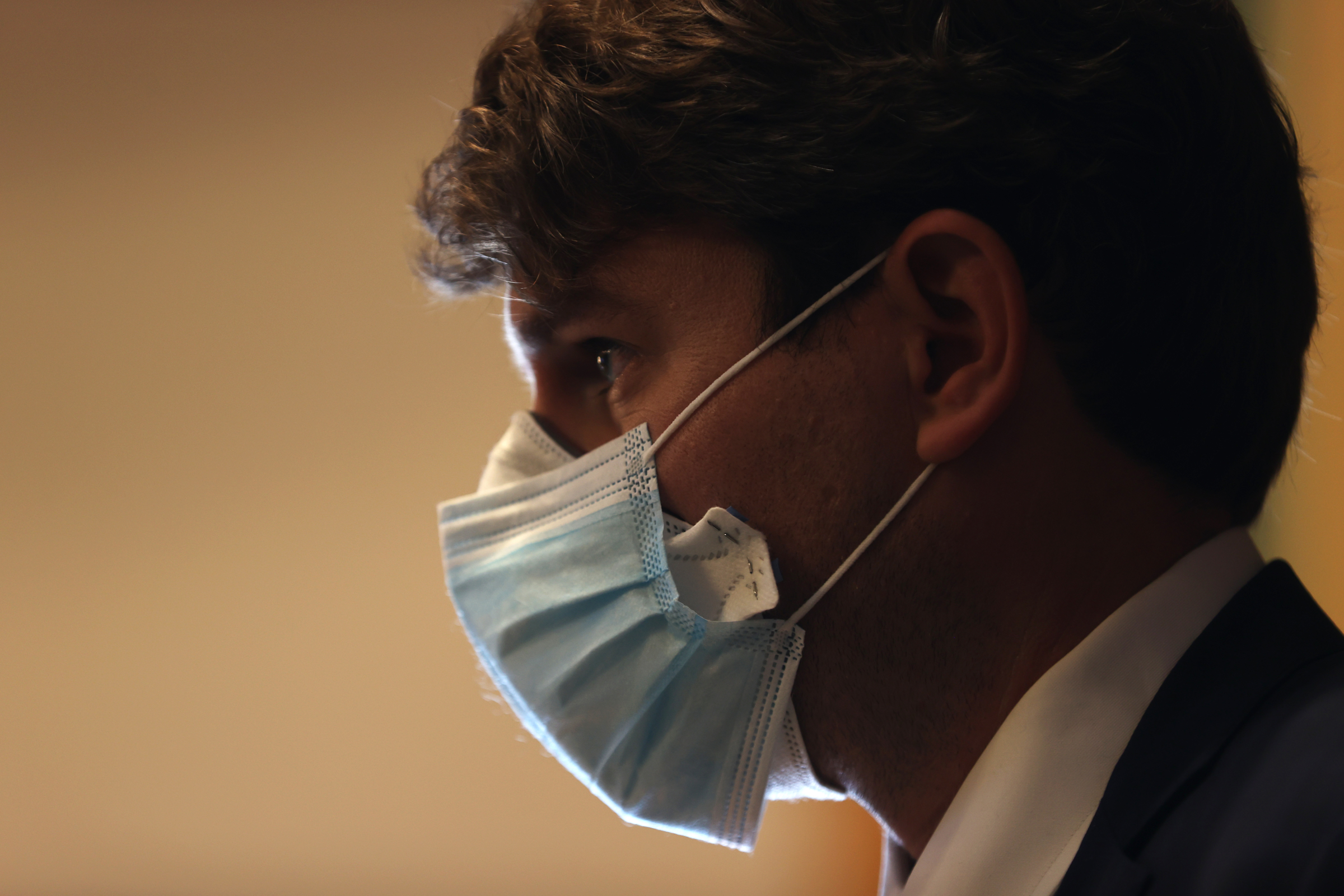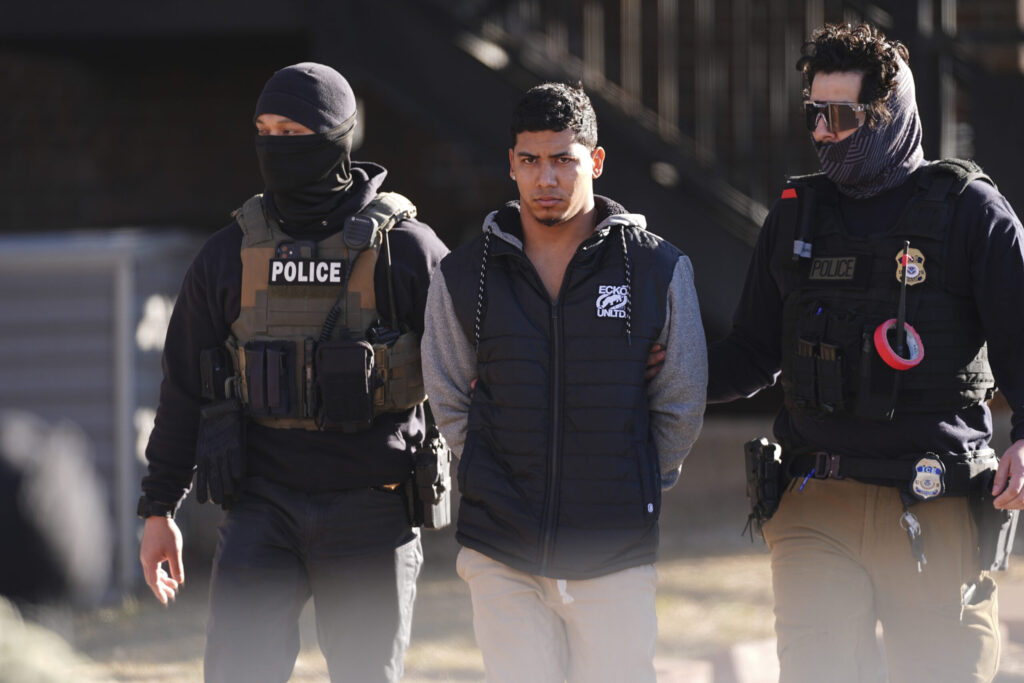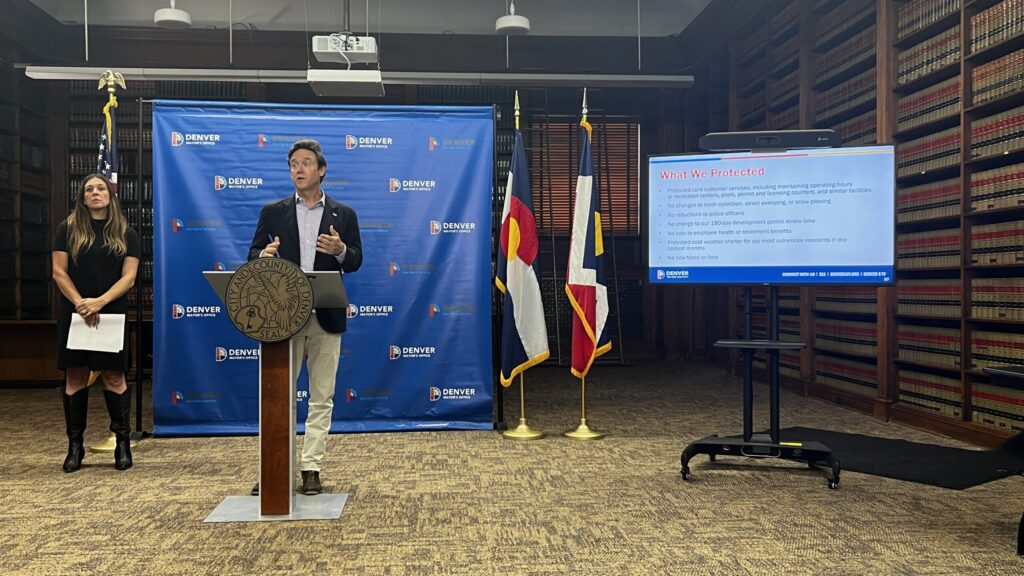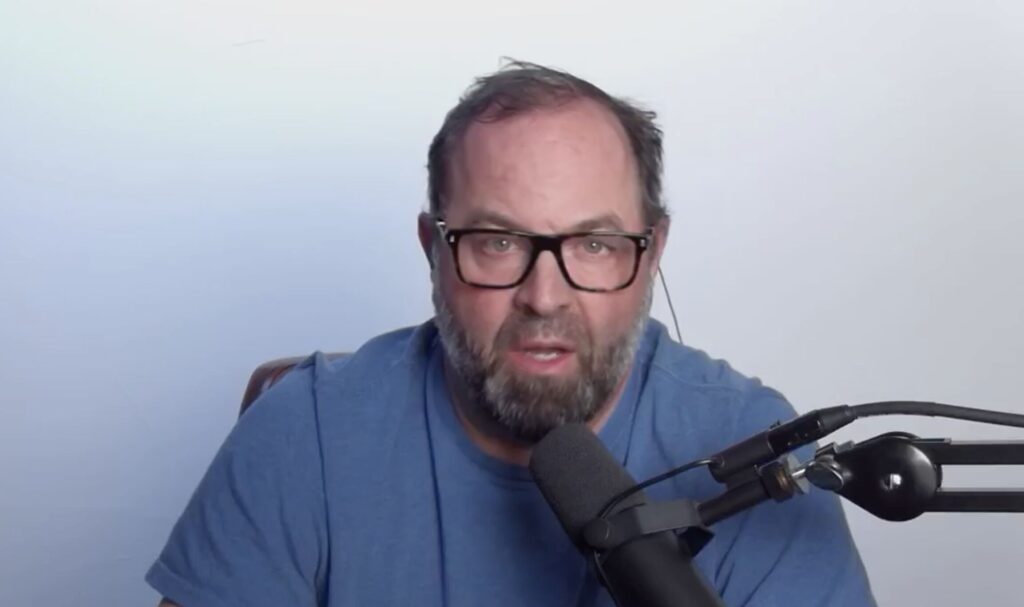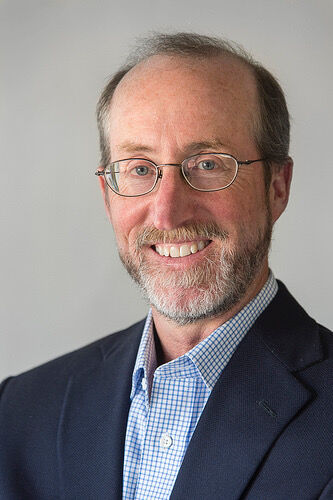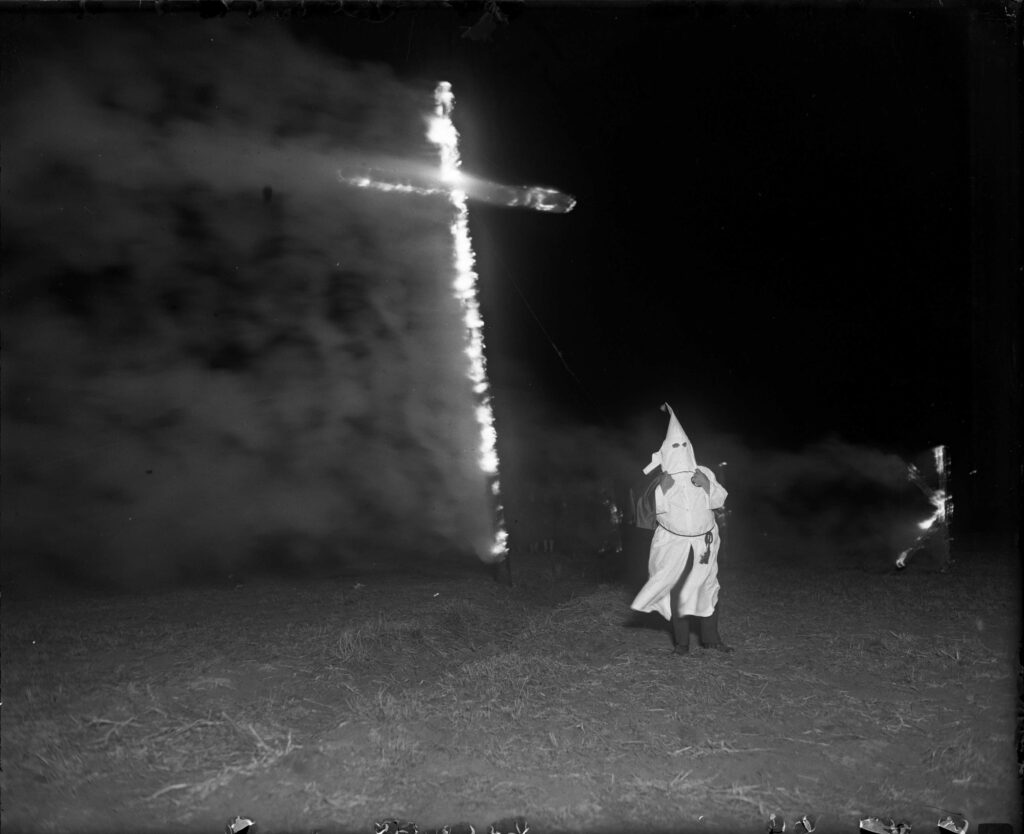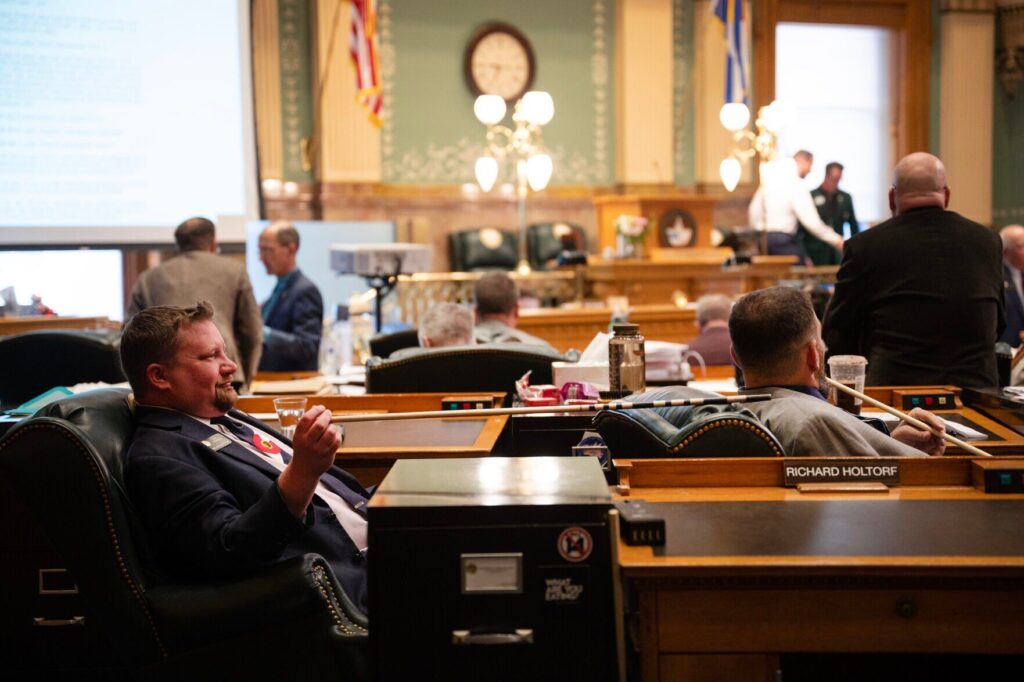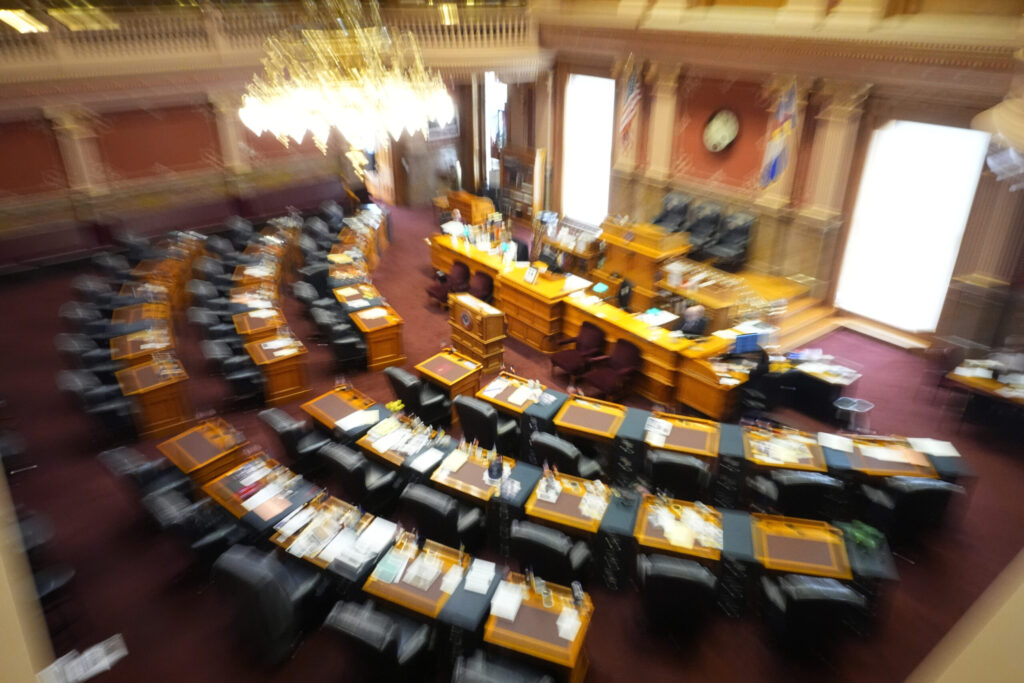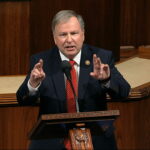Q&A with Rep. Alec Garnett | Speaker of the House reflects on his time in the legislature
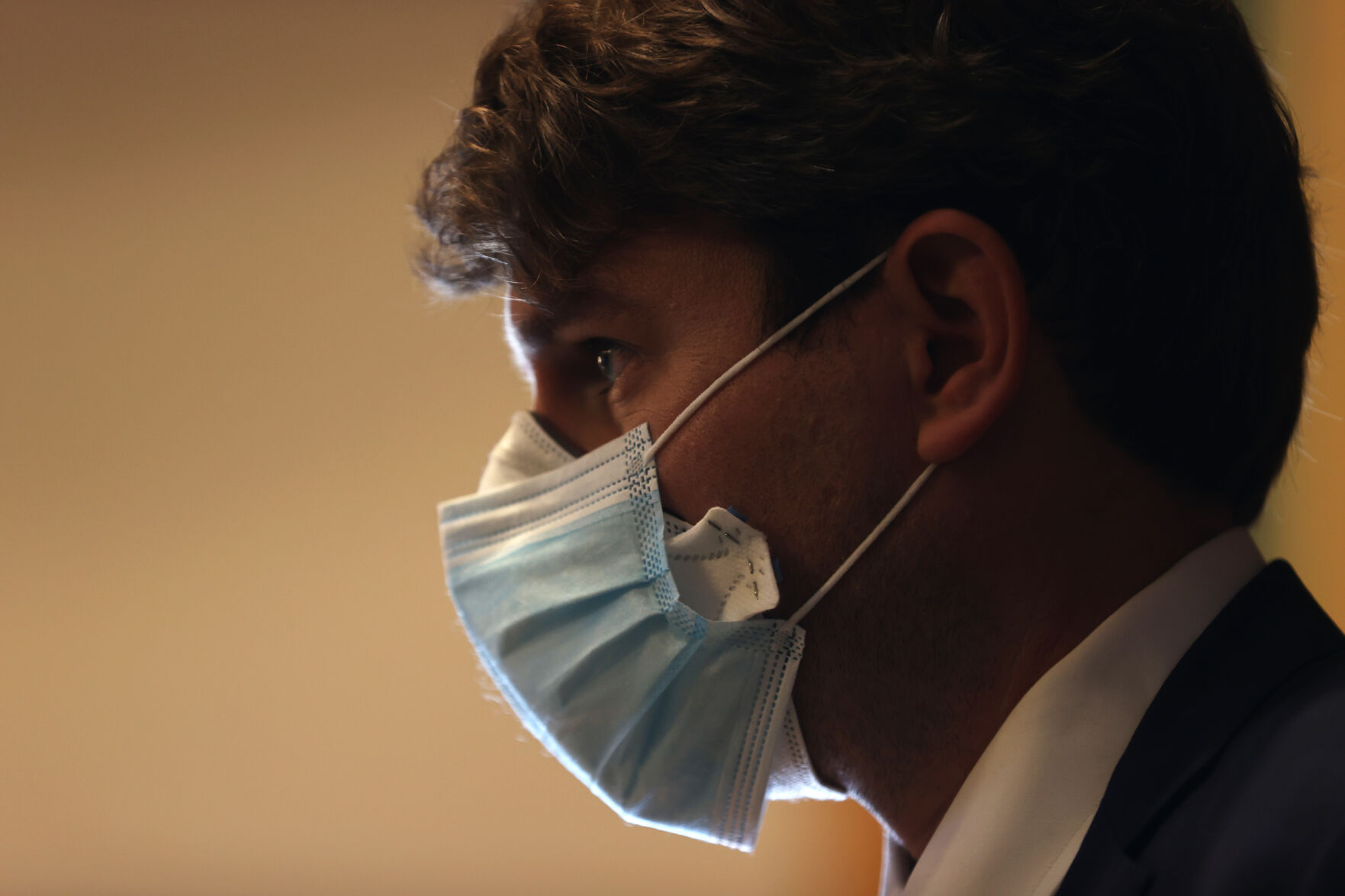
At 38, Speaker of the House Alec Garnett, D-Denver, is in his last of eight years in the Colorado House and among the youngest to serve in that position.
Garnett is the third Democrat from the Capitol Hill House District to wield the speaker’s gavel. He follows former speakers Mark Ferrandino, the youngest to ever serve at age 36, and Crisanta Duran, who like Garnett was 37 when she rose to the top post in the Colorado House.
Garnett will end his House career at a time when most are first thinking about running for the legislature. The future is wide open for the Boulder native, including talk about him running for Denver mayor in 2023. Ahead of the start of his final legislative session in the House, Garnett sat down with Colorado Politics. Here’s what he told us:
Colorado Politics: What prompted you to want to be a lawmaker?
Garnett: I worked behind the scenes in a public policy role for a really long time, for great people like Ed Perlmutter and U.S. Rep. John Adler, D-N.J.

I never actually thought that I was going to be in a principal position. I always thought, “I’m learning skills, I’m seeing how it’s done, and I’ll keep taking those skills to the next person I’m working for and helping out.”
When Emily and I moved to Denver, we bought a house in Cap Hill. We were in House District 5, which at the time had just elected Rep. Crisanta Duran. So I was never thinking, I’m gonna wait eight years to follow Duran into this role. I was going to my HD 5 meetings and just trying to be a good member of the community.
And then reapportionment happened in 2011 and I was redrawn into House District 2, with Rep. Mark Ferrandino. He was term-limited, but more importantly, the district changed so much that it became one of the youngest house districts based on average age of voters in the state.
I was 31, Emily and I weren’t married yet. We didn’t have kids. And the conversation we had at home was [that] we never thought I would actually run, but the issues that we care about, the high cost of higher education, concerns about childhood and early childhood education, these were going to be concerns that people and the district really cared about. So, we made the decision jointly to go and just try to see if I was going to appeal to the voters.
I’ve always thought of the public sector as a way to create the most change and to help the most people in your community. It’s the place where everyone comes together to discuss innovative ideas, to discuss solutions to problems that they’re experiencing.
I’ve always considered myself a good listener. On the first business card for my campaign, it said, “Vote Alec Garnett, a leader who listens.” And even at the tender age of 31, I feel like I knew what it took to be a good representative, which is just being able to listen to the concerns that people have, to listen and referee a good fair negotiation, to listen to the minority party and the majority party. It’s all worked out great. It’s been a huge honor and I’ve really, really enjoyed it.
CP: You did something last year that took everybody by surprise and stuck out as one of the most bipartisan signals I’ve seen in more than two decades at the Capitol: Appointing Republican Marc Catlin as vice chair of the House Agriculture Committee. Will he remain in that position in the 2022 session?
Garnett: I did only do it for one session, but I have every intention to appoint him again if he wants it. So I will definitely have that conversation with him. I think it’s pretty much up to him.
I thought he did a great job, even when we disagreed, with some of the work that was being done in the chamber. He did it with such grace. Marc represents what it means to be a representative at the Capitol. He has amazing experience. He is a rancher, a farmer. He understands water almost better than anybody.
And so when I first approached him on the topic, he [said] “Why would you consider me? I’m a Republican?” I [said] you have the most knowledge, subject area knowledge for this committee.
This is what we’re supposed to do. This is what makes Colorado great, is putting people like [Catlin] in this position to help guide us through these very challenging issues, the issues around water and some of our compacts, especially in his region of the state and which are going to come up again in the near future.
So I want him to be in a leadership role. I want to be able to consult him and listen to him, follow his lead.
CP: What are you most proud of in your time in the legislature?
Garnett: I have so many fond memories of working on a lot of cool issues and I always felt like I tried to take on some of the toughest ones every year.
I would rather take on one tough one than a bunch of consensus-driven ideas.
[That includes] student data privacy with [then-Rep.] Paul Lundeen in the early years, social impact bonds [with then-Rep. Jack Tate] or construction defects [with Rep. Cole Wist].
I was always proud of the way that we put together the extreme risk protection order bill, the red flag bill, it’s saving lives.
I spent a lot of time making sure that some of the concerns that people who were opposed to the idea were raising weren’t going to come true, that they weren’t going to be used frivolously by scorned lovers or anything like that.
Fast forward to last session and creating a department for early childhood, or trying to bring two sides together on marijuana, taking the time to slowly work through an issue in making sure that you aren’t creating unintended consequences and more problems for future legislatures to unwind has always been a goal of mine.
I feel like at least up to this point I have done that and I’m really proud of all of those key pieces of legislation. I always tell Emily that I’m going to focus on one big thing. Sometimes I don’t know [what it will be], but it always seems to find me.
CP: Your dad is a prominent attorney, a former district attorney, a former candidate for attorney general. What have you learned from him?
Garnett: I’ve learned so much, he’s a great mentor. He’s somebody that I listen to all the time.
The first thing he taught me was always get involved in your community, whether or not it’s going to a neighborhood association meeting, being on the PTA, running for school board, or just going to a city council meeting.
Make sure that you stay in touch with what’s happening around your community, because it impacts you. And if good people get involved, then they can help navigate challenging issues, because there’s never an end to challenging issues.
People sometimes say down here, “What’s going to be the big issue next year, you guys have done all the big issues?” And it’s like with government and with the pace at which our economy and our society is moving, there’s always going to be issues that stump legislators.
He taught me early on about getting involved, don’t be afraid to get your hands dirty in the arena. He also told me early on, “Don’t be afraid to be bold.” When he was running for AG, he kept saying, “We need to talk about gun violence. We need to talk about gun violence prevention.”
I had just come out of D.C. and 2010 was a challenging year for Democrats. And I kept being like, “Whoa, we cannot talk about this. This is not the issue to talk about.”
He said, “Alec, it is a huge problem. And if you don’t start talking about it and you don’t start raising it to the top, no one’s ever going to do anything about it.”
He honestly was the first person to bring to my attention how dysfunctional the public discourse was around gun violence prevention. That was in 2010. Look at where we are heading into 2022. I’m proud of the work that Colorado got done, but he was always a visionary on some of those big key issues.
CP: Can you talk about the difference between your relationship with some of the folks on the other side of the aisle? You served as majority leader when Rep. Patrick Neville, R-Castle Rock, was the minority leader, and now you have Minority Leader Hugh McKean.
Garnett: The first difference is that I’m not the majority leader, which just decreases the amount of time that I’m interacting with people on the floor.
My relationship with Patrick is really strong. It is a deep friendship that kind of evolved from a place of trust. That’s the basic tenet that has grounded our relationship when I first became majority leader and was in charge of the calendar.
There’s a lot of vulnerable places as majority leader. You’re kind of like the drummer boy who’s at the front of the line for the enemy attacks, if there’s going to be any, and you’ve got to be smart enough to make sure that what you’re working on and the direction that you’re going and you’re taking your team isn’t gonna be derailed.
From the same point, there’s a vulnerability as minority leader, too. You want to make sure that the information you’re conveying to your caucus is honest, that you’re not being surprised by the majority party.
I watched as assistant majority leader before that, where there were moments where the majority party sort of sneak attacked the minority, popped a resolution onto the calendar at the last second. That same resolution called for a recorded vote when there was a deal made that there wasn’t gonna be a recorded vote and that put the minority party in a very disadvantaged position. That put a lot of pressure on Neville.
When I came in, I made a commitment that I wasn’t going to do that and in return he was just honest with me about how long debates were going to go and if there was a problem.
We just traded honest information and it just grew into a friendship, to the point now where we constantly are texting and we’re sending funny family photos. We went to Israel together and it’s a friendship that I think will live on forever.
I’m really close to Hugh too. We were there for each other to kind of work through tough issues. We ran into some tough issues last year where we kind of had to navigate the decorum of the chamber.
I think we both share some of the values of the institution and will continue to be friends as we go forward. It’s not quite like on the intimate level that was developed through the fire of running the floor with Patrick, but I certainly have a very high level of respect for Hugh.
Fast facts:
Where did you grow up? Boulder.
Family? Son of former Boulder County District Attorney Stan Garnett and wife Brenda, a retired school psychologist in the Boulder Valley School District. Married to attorney Emily Renwick Garnett. Two sons and a daughter, including a son born last July.
Education? Fairview High School; Bachelor of Arts in history, College of Wooster; Master’s of Public Administration, University of Colorado Denver.
Steak, sushi or salad? Steak
Broncos, Avs, Rockies or Nuggets? Broncos for sure.
Think they’ll make the playoffs? No. Maybe. The fact that we have December games that matter is really all I care about. (Editor’s note: This was answered in mid-December, before the losses to the Chargers, Raiders and Bengals.)
What’s something that people don’t most people don’t know about you? I love the game of chess. I love chess. I will play chess at any point any day. When Bill Skewes was chief of staff for the House GOP, we downloaded this app together where we would play over a week. He’s also very, very good at chess.
